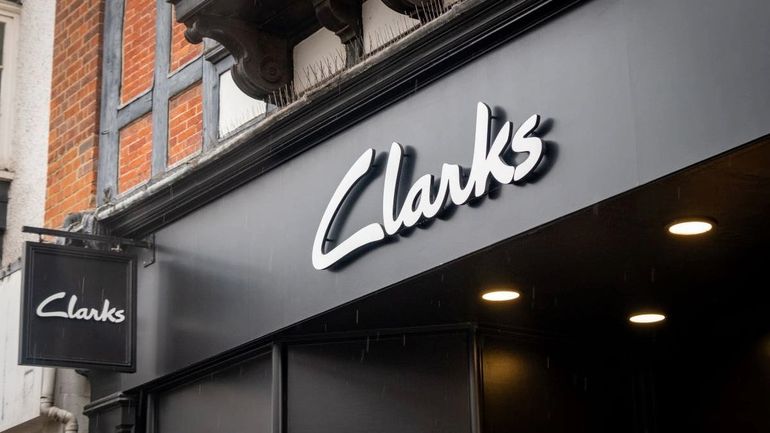
Footwear Retailer Clarks Faces £32 Million Loss Due to Margin Pressure from Promotional Strategies

Clarks, a renowned footwear retailer, experienced a significant decrease in margins attributed to the use of promotional tactics to attract price-conscious consumers, leading to a £32 million loss. The company's reliance on discounts to drive customer footfall has intensified pressure on its profitability.
Credit: William Barton / Shutterstock
Clarks attributed its recent poor performance to relying too heavily on promotions in a tough inflationary environment. The British footwear company reported a significant after-tax loss of £32.1m, a stark contrast to the £22.4m profit it had made in the 48 weeks leading up to 31 December 2022. Despite increasing its revenue to £994.5m in 2023 from £980.3m the previous year, the company still faced challenges.
The business reported a significant loss, attributing much of it to £52.8m in one-off costs. This includes impairment charges on store assets amounting to £41.6m, as disclosed in its filing to Companies House this week.
Clarks is also dealing with various challenges in the Western hemisphere, which it refers to as "headwinds" affecting its performance. The company highlighted "weak demand" in full price channels, with consumers facing cost of living challenges. This has resulted in decreased customer demand and lower store footfall compared to the previous year.
The board also pointed fingers at a "promotional marketplace" and bargain-hungry consumers for driving down selling prices and increasing the need for promotions.
Furthermore, the board mentioned that rising product costs, influenced mainly by inflation and exchange rates, have led to lower-than-anticipated profit margins for the year 2023.
Clarks praised its marketing team for their commitment to a “social first, consumer centric strategy” for the ‘For The World Ahead’ brand platform. They highlighted the success of their “well-established” consumer segmentation approach in targeting both new and existing consumers who contribute to sustainable brand growth.
Similar to Dr. Martens, Clarks has adopted an “always on” product marketing approach across digital and social media platforms, in-store point of sale, and direct mail campaigns. The goal of this strategy is to enhance the brand, increase traffic, and foster customer loyalty.
The business is aiming to revitalize its established markets in the UK and US by focusing on recapturing and expanding its customer base. In the Americas, the perception of the Clarks brand has improved, thanks to successful marketing campaigns that have increased visibility and appeal to a more contemporary audience.
In the UK, the company has successfully halted its long-term market share decline and experienced growth in the men's market, particularly among consumers aged 30 to 44.
The business also points to a refreshed leadership team in the UK to help build future plans in its home market.
There was, however, no mention of an increase in marketing budget.
Editor's P/S:
Clarks' financial struggles highlight the challenges faced by retailers in the current economic climate. Despite increasing revenue, the company's reliance on promotions and rising product costs have eroded its profit margins. The "promotional marketplace" and bargain-hungry consumers have further exacerbated the situation.
To address these challenges, Clarks is focusing on revitalizing its established markets and adopting an "always on" product marketing approach. By targeting new and existing consumers and enhancing its brand image, the company aims to increase traffic and foster customer loyalty. However, it remains to be seen whether these measures will be sufficient to overcome the headwinds that have impacted its recent performance.









